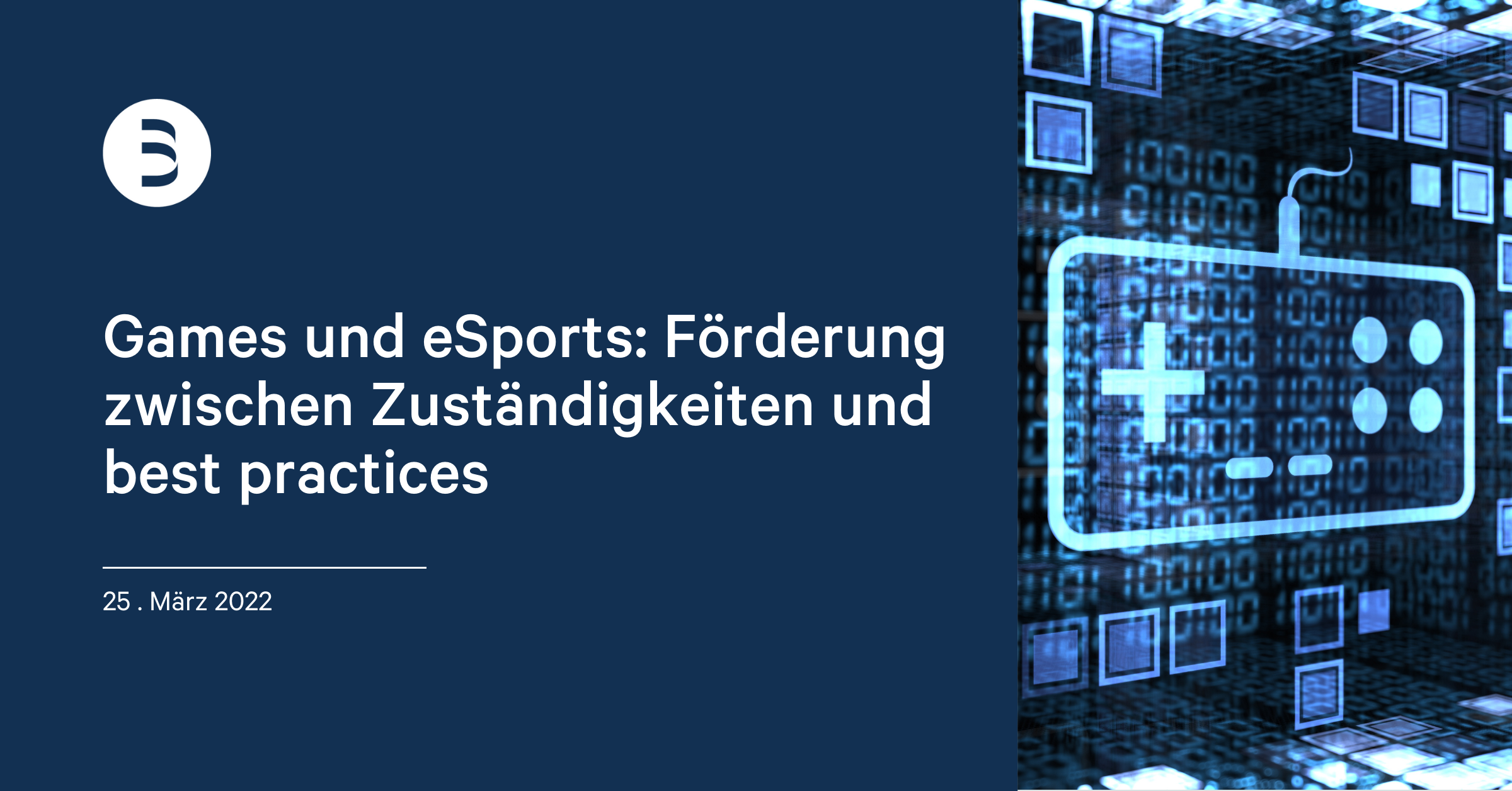
With the restructuring of the former “Federal Ministry of Transport and Digital Infrastructure” into the “Federal Ministry of Digital Affairs and Transport”, the new Federal Government has highlighted its priorities: Digital affairs are moving more into the focus – at least in the political communication. Expectations are high, but at the same time often unclear. What will the restructured ministry actually do differently? And what areas of responsibility does it cover? The Conservatives’ (CDU/CSU) Federal Parliamentary Group also made this the subject of a parliamentary inquiry, which has not yet been answered (as of 24 March 2022).
For the German games industry, the question of responsibility at the federal level has already been clarified. Immediately after the new Federal Government took office in December 2021, the organizational decree (“Organisationserlass”) already distributed the responsibilities between the Ministries. “Responsibility for Games” is thereby assigned to the Federal Ministry of Economics and Climate Protection.
The symbolism of this decision should not be underestimated. Games are understood as an economic factor. Gone are the days when the international blockbuster “Crysis 2” was the winner in the “Best German Game” category at the 2012 German Video Game Awards (“Deutscher Computerspielpreis”), but at the same time was highly controversial in the political debate as a supposed “killer game” (“Killerspiel”).
This debate has not been completely resolved with regard to eSports. The previous Federal Government of Conservatives (CDU/CSU) and Social Democrats (SPD) had planned the recognition of eSports as a sport in its coalition agreement. In the end, this project failed, primarily due to differing views between the policy areas of “digital affairs” and “sports”. Also against the backdrop of this experience, the new “traffic light” coalition of Social Democrats (SPD), Greens and Liberals (FDP) does not address the issue in its coalition agreement.
Away from the supposedly “big question” of recognizing eSports as a sport, a great deal of pragmatism is evident at the level of the Federal States. There, eSports has long since arrived in popular sports, and is practiced by people from different backgrounds – and thus often in clubs as well. For teams and professional eSports organizations in particular, the central issues of infrastructure and funding are usually decided at the state level.
The number of Federal States that are leading the way in the field of eSports is steadily increasing. In Schleswig-Holstein, the eSports association Schleswig-Holstein already operates regional “eSports centres”, which are supported with both digitization funding and direct funding from the State. The parallel possible use of the modernly equipped centres as co-working spaces additionally strengthens business and innovation. Saxony-Anhalt also attaches great economic importance to eSports. The “E-Sport Hub Saxony-Anhalt” is funded by the “Digital Agenda” of the state of Saxony-Anhalt and sees eSports as an economic and innovation factor for the entire region. There are also pilot projects in other Federal States, for example in NRW for the integration of eSports in regular sports clubs. Nevertheless, funding in many federal states has not yet been adapted to the special requirements for eSports.
For clubs, teams and eSports organizations, this means that contact with local decision-makers must be intensified. Federal politicians and directly elected members of parliament can play the role of important multipliers. However, an active exchange of experience with political stakeholders directly on the ground is at least as crucial. Knowledge about “best practices” from other Federal States brings great added value, especially for political stakeholders at State level and at local level. It must thus be actively communicated.
The same applies to developer studios and publishers. The potential of games and eSports is being recognized step by step. The “E-Sport Hub” in Saxony-Anhalt is just one example of this, which, in combination with Intel’s new seat in Magdeburg, massively increases the attractiveness of the State as a location for digital business. Approaches of this kind need to be developed further in a constructive manner and brought into the political debate in a targeted manner. The work of the German Football League (DFL) at the beginning of the Corona pandemic shows that thought-through concepts developed by practitioners are taken into account in decision-making processes.
Did you like this article?
Chat with us and share it on Twitter and LinkedIn.